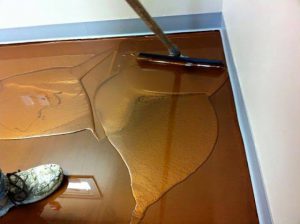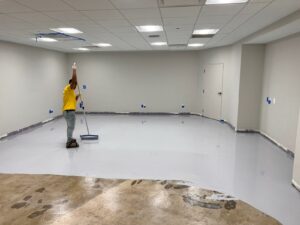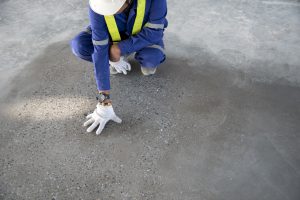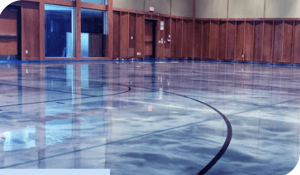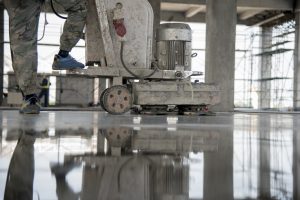Epoxy flooring has become a premium choice in the flooring industry, mainly because of its seamless floor finish that comes with durability and low maintenance. The origin of this flooring starts from the phenomenon of curing. The process takes place when the epoxy resin is exposed to certain materials like heat, air, and chemical additives. The chemical reaction speeds up with the addition of a catalyst that aids in the process of curing. An exothermic reaction takes place with the genesis of the cross-linkage polymer. This cross-linkage polymer renders durability and rigidity on the floors.
Primarily, because of this reason, epoxy flooring has been on the charts of various commercial spaces like hotels, hospitals, salons, offices, airport hangers, heavy-industries, garages and even houses etc. Not only in floors, but epoxy has also provided strength to different interior accessories and establishments like countertops, backsplashes, tabletops, mirror frames, headboards, closets, fireplaces, etc. The rich glossy texture adds beauty in the overall interiors of a house with a durable base lasting for several years. This makes it a perfect choice for residences too. Epoxy floors have so much to offer, and all this comes handy at a nominal price.
Vinyl Flooring: Vinyl floors are basically continuous sheets that are widespread and flexible in nature. Sometimes it is confused with linoleum, which is almost similar but is different in chemical composition. Vinyl flooring sheets are preferred due to the fact that the layers are water impervious, reasonably durable, and insulating. These floor sheets are very convenient to install and are readily available in various customizations as well. These sheets are picked up by the offices and residences for the fact that they are quite affordable and cheap.
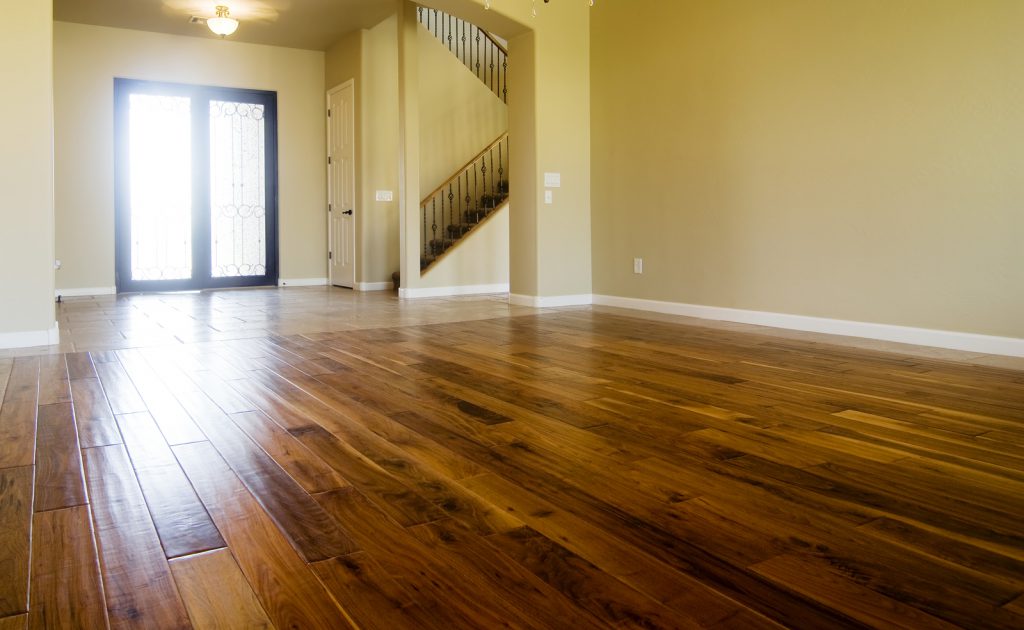
Differences between Epoxy Flooring and Vinyl Flooring
Installation
Vinyl floorings are meant to be installed at a particular temperature, failing which might lead to poor results and at the same time degrades the warranty given by the manufacturers. The prices may level up further if suitable environmental conditions are not available. This can also lead to delay, excessive schedule, and juggling in the installation period. Epoxy resin floors can withstand a wide bandwidth of temperature from higher degrees to temperatures below the freezing point. This allows various installation flexibility along with savings.
Sanitation and Hygiene
Vinyl floors have a major disadvantage from heat-welded seams. Often it has been found that these seams tend to curl and crack when they are exposed to high temperatures, heavy traffic, liquid cleaners, and disinfectants. There are chances of microbial and bacterial proliferation from any violence in these floor surfaces. The gaping between the concrete slab and vinyl sheets can lead to the formation of small pouches of moisture, which becomes a habitat for these bacteria to colonize. Many a time during renovation, there is a growth of molds underneath these vinyl sheets. Epoxy resin floors on a contrast become a stable base when they are poured on a concrete slab. They are resistant to any kind of spills and liquid. Further, they don’t soak moisture to procreate the bacteria and germs. With the sturdy base of epoxy, it is almost impossible to create cracks, holes, fissures, etc. that will allow the growth of such germs.
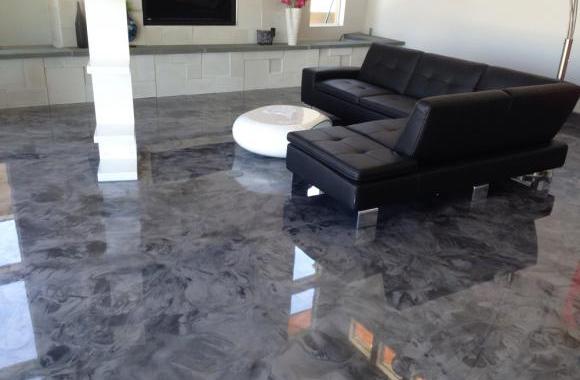
Environmental Amiability
Vinyl sheets need to be removed in order to install a fresh layer of a sheet on the floors. When the new sheets are spreads, they have to be cut-sized in order to be appropriate according to the given space. A sizeable amount of waste is generated that are to be disposed of through landfills time and again. This flooring includes materials like phthalates, polyvinyl chloride, and formaldehyde which emit harmful fumes for months making the indoor ambiance suffocating. In epoxy, the new coating of resin is generally poured on the former one, which saves waste generation and even outgassing is not an issue when the floors are completely cured. The good thing is that they don’t have toxic substances like formaldehyde and phthalates.
Adhesion and Bonding
Vinyl floors mainly depend upon heat-welded seams and water-based adhesives. There are frequent issues of alkaline moisture vapor that happens on the concrete surface. These adhesives can also deteriorate the floor, coupled with other problems like seam separation, bubbling, and several other issues. Epoxy floors, on the other hand, react directly with the concrete surface below eliminating the chances of cracked or separated seams. Outstanding quality of chemical and imperviousness provides additional protection to alkaline moisture vapor transmission.
Maintenance
Vinyl floors are damaged by commercial cleaning liquids and disinfectants. Though initially, they might appear to be low maintenance, in heavy traffic areas, they will go through a lot of impairment with cracking and peelings. One has to opt for labor-intensive techniques like waxing to restore the look for a longer time. They have limited durability in regard to chemical reaction, puncture and gouge resistance. Epoxy floors are completely on a different spectrum with features like chemical resistance, non-porosity, durability, which can sustain a lot of wear and tear, glossy finish which outstands the performance of vinyl sheets. The lifespan of epoxy resin floorings is impressive when compared to the vinyl sheets.



